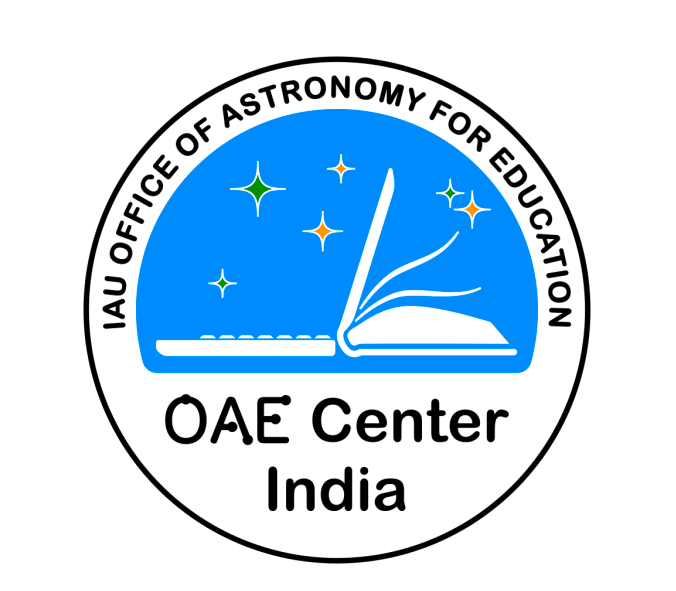Office of Astronomy for Education will focus on astronomy teaching methods and assessment at school level
Mumbai, NFAPost:To strengthen the efforts to support astronomy education worldwide, the International Astronomical Union (IAU) has announced the founding of four new centres in its global network of the Office of Astronomy for Education (OAE).
The OAE Centre India will be managed by the Inter-University Centre for Astronomy and Astrophysics (IUCAA), Pune, an autonomous institution under the University Grants Commission, Ministry of Education, in association with the Homi Bhabha Centre for Science Education of the Tata Institute of Fundamental Research (HBCSE-TIFR), Mumbai. They are the leading institutes in Astronomy Research and Science Education in India, respectively.
The focus of the work carried out in this new Center will be on Astronomy teaching methods and tools of assessment for middle- and high-school students and teachers, along with language inclusivity.
IUCAA director Somak Raychaudhury said although the astronomy community has collectively created a large number of education resources in the last few years, there is a need for standardised tools and protocols to assess the quality and impact value of these resources, as well as that of the teacher training programmes that are currently conducted.
“The OAE Center in India will strive to develop these tools and protocols, and also devise newer modules and training structures based on such an assessment. The activities of the centre will impact astronomy education in Indian schools and classrooms internationally,” said IUCAA director Somak Raychaudhury.
The OAE Center India will not only play a key role in leading global projects developed by OAE, but will also support initiatives in neighbouring countries that use common languages. IUCAA already hosts the Astronomy Centre for Educators (ACE), to develop under- and post-graduate curricula and to train university teachers, and has 25 years of experience conducting undergraduate teacher training
programmes in Astronomy & Astrophysics. It also has a leadership role in future astronomy projects like the Thirty Meter Telescope, LIGO-India and several Indian space astronomy missions.
HBCSE-TIFR is a STEM education research institute with resources and expertise of more than 45 years in Science education, as well as research and training programmes spanning from primary to UG education It is a driver for public policy on education and science communication. It is also responsible for the Academic Olympiads programme in India.
The partners thus look forward to working with all OAE Centers and nodes. The Center will be supported by the Astronomical Society of India (ASI) – a professional body of Indian Astronomers with over a thousand members, and an extensive network of Astronomy faculty members from different Indian Universities and the Indian Association of Physics Teachers.
The tasks that will be taken up by the India Centre include the development of a model curriculum that are relevant and sensitive to specific regions, cultures and languages of India, and various countries of Asia/Africa and countries in Asia / Africa with similar learning environments. It will develop teaching materials and strategies with a focus on the delivery of quality content even in low-resource classrooms.
Local context specific teacher training programmes (in online as well as offline modes) introducing them to active learning models and evidence-based teaching via astronomy, will also be taken up over the next few years.
Surhud More from IUCAA said understanding teacher’s existing beliefs, competencies and confidence levels with regards to teaching astronomy in classrooms will be key to restructure teacher training programmes. It will also help to refine astronomy curriculum materials.
“Our centre will create assessment rubrics not just for student learning but also to improve the clarity of curriculum materials and the efficacy of teacher training programmes,” said Surhud More from IUCAA.
Aniket Sule from HBCSE-TIFR said the Center will also work towards formal astronomy education research at the school level.
The cognitive landscape, related to astronomy, in students’ minds would be systematically investigated by developing tools such as concept inventories. At the same time, creating astronomical concept maps will lead to better understanding of learning trajectories”, said Aniket Sule from HBCSE-TIFR.
All these efforts will give a boost to the wonderful and age-old science of Astronomy becoming an
important curricular subject in Indian middle schools and high schools. This will also lead to the
awareness of India’s great progress and presence in this field.
Indian student contingents have been participating and receiving laurels at international Olympiads in the field of Astronomy for over two decades now.
“The OAE India Centre is committed to provide academic support to school level astronomy competitions / camps globally and will help create and mentor a network of astronomy educators interested in nurturing excellence”, said Arnab Bhattacharya, Centre Director of HBCSE-TIFR.
The OAE head office was established by the IAU in December 2019 at the Haus der Astronomie and the
Max Planck Institute for Astronomy in Heidelberg, Germany. It aims to foster students’ interest in
astronomy including research, communication and development.
Since then the OAE has been building collaborations with partner organisations that share its mission — to promote and support the development and improvement of astronomy education as well as the use of astronomy in Science Education all over the world.
OAE Centres and smaller OAE Nodes collectively work towards common goals of OAE in a decentralised manner. All these OAE centres and nodes are funded by their respective host organizations that have an interest in furthering astronomy education. OAE Centres in Italy and Cyprus and the OAE node in Nepal were already established last year.
Other than the OAE Centre India, the new branches announced this year are: the OAE Centre China-Nanjing, hosted by the Beijing Planetarium; the OAE Centre Egypt, hosted by the National Research Institute of Astronomy and Geophysics (NRIAG); and the OAE Node Republic of Korea, hosted by the Korean Astronomical Society (KAS).





